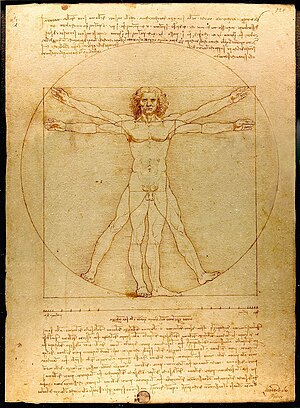This shows Richard Feynman(who thoughts of both nanomanufacturing and quantum computers; he did a renormalization of quantum electrodynamics which made it workable; some physicits would say the renormalization problem is still not completelly solved. I for one would argue that Richard Feynman's physics isn't that much better than many others; Dirac . . . who came up with quantum electrodynamics in the first place . . . Pauli/weak nuclear force, Weinberg/Salem/Glashow who made the unification of electromagnetic and weak nuclear force, Alan Guth, and many others; but, when you add his atomic bomb work, his imagining of nanomanufacturing and quantum computers, he was definitelly imaginative in a logical way. My previous blog had a write up on Richard Feynman pointing out his central influence on perhaps humanities soon to be star trekkish future) describing Murry Gell Mann's quark theory, and Yuval Ne'eman(who's work helped lead to Higgs theory if I recall correctly).
Speaking of the Higgs, i've heard one interesting sentence that the physics community is bracing for the announcement of the Higgs. I grew up in the weak/electromagnetism unification experiments(so did probably anybody who reads this at age 35 or so); the electroweak unification of CERN was the greatest particle physics accomplishment of our time(even the discovery of the Top quark of like 1990). In astronomy, there was the Cobe cosmic radiation background I suppose, which could be as big a physics accomplishment as the electroweak unification of particle physics(around 1983). Since that time, the higgs has basically been the major problem.
As I further related in my previous blog(hopefully, I keep this one; i think I will), the discovery of the Higgs reminds me of the discovery of the Neptune. Astronomers and mathematicians had generalized(both the mathematics of Newton's principia, and the data of part three of his Principia which was called "The System of the World") much of Isaac Newton's Principia till finaly, Laplace's "Celestial Mechanics" filled five thousand page volumes; it was made obsolete by William Hamilton just a few decades later(William Hamilton came up with quaternians, a generalization of complex numbers). Well, this effort revealed orbital anamolies of Saturn and Uranus(discovered by William Herschel; Herschel also notes some curious energies which he suggested correctly were infrared light); they were able to calculate that there must be a planet at such a time and place; they convinced some astronomers to do so, and to the astonishment to them, there was Neptune! The Higgs likewise has more or less been known that it's got to be there. The Higgs is involved in the electro-weak unification and Alan Guth's inflationary generalization of the Big Bang theory(confirmed by the Cobe satellite around 1990); it's got to be there!
Why does some of humanity anyways try to learn the universe? Intellectual scientists would argue because of our curiosity(why doesn't 95% of humanity not have this curiosity?). This maybe the reason for some people; but, the truth is that humanity has struggled, back and forth, with rationalizing whether we should risk money and time that could be spent hunting/gathering and farming on exploring. The truth is that eventually, push comes to shove; the environment changes; this may leave an impression on the next generation that maybe it would be a good idea to learn something about the motions of the sun, moon, stars, and planets(named by the Greeks) and so on and so forth. Today, CERN and particle physicists and even astronomical telescope makers say that the effort to explore the universe creates spinoff technologies. I'm surprised that James Burke didn't note this; for instance, giving the example of digital cameras came about from ccd astronomy of the 1980s; this technology has connections back to the beginnings of the semi-conducting industry in the 1950s. There's recently been the exciting prospect of nuclear energy by means of particle accellerators! This was actually thought of decades ago; but, those on capital hill thought they knew better!

No comments:
Post a Comment